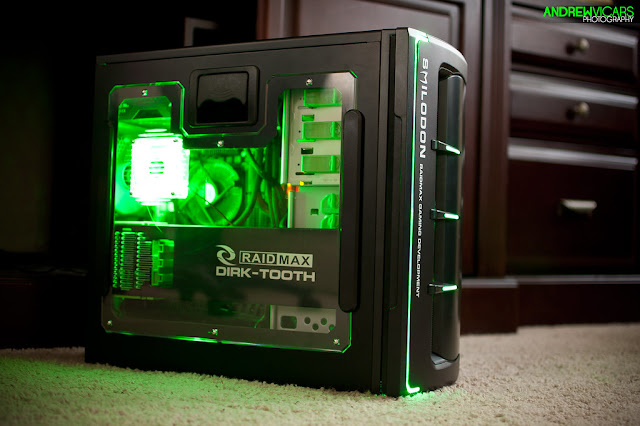The specifications for a gaming PC can vary depending on your budget, the types of games you want to play, and your preferences regarding graphics quality and performance.
Here's a general guideline for building a high-performance Windows gaming PC:
1. Processor (CPU):
- Recommendation: Intel Core i5 or AMD Ryzen 5 as a minimum for mid-range gaming. For high-end gaming and multitasking, consider Intel Core i7 or AMD Ryzen 7. For the best performance, go for an Intel Core i9 or AMD Ryzen 9.
2. Graphics Card (GPU):
- Recommendation: NVIDIA GeForce GTX 1660 Super or AMD Radeon RX 5600 XT for mid-range gaming. For high-end gaming, consider NVIDIA GeForce RTX 3070 or AMD Radeon RX 6800 XT. For enthusiast-level performance, go for the top-tier GPUs like NVIDIA GeForce RTX 3080 or AMD Radeon RX 6900 XT.
3. RAM (Memory):
- Recommendation: 16GB is the minimum for gaming. For optimal performance, especially in newer titles, consider 32GB or more. Make sure to choose high-speed RAM (around 3200MHz or higher) for better performance.
4. Storage:
- Recommendation: Use a fast SSD (Solid State Drive) for the primary storage to ensure quick loading times. Additionally, consider having a larger HDD (Hard Disk Drive) for mass storage. NVMe SSDs offer faster read/write speeds compared to SATA SSDs.
5. Motherboard:
- Recommendation: Choose a motherboard that supports the chosen CPU and offers features you might need. Ensure it has sufficient PCIe slots, USB ports, and compatibility for future upgrades.
6. Power Supply (PSU):
- Recommendation: Invest in a high-quality power supply with enough wattage to support your components. Look for 80 PLUS Gold or Platinum certification for efficiency. Ensure it has the necessary connectors for your GPU.
7. Cooling:
- Recommendation: If you're using a high-performance CPU or planning to overclock, consider an aftermarket CPU cooler for better temperature management. Good case airflow is crucial; consider additional case fans for optimal cooling.
8. Case:
- Recommendation: Choose a case that accommodates your components, has good cable management options, and provides adequate airflow. There are various form factors available; choose one that suits your preferences.
9. Motherboard:
- Recommendation: Choose a motherboard that supports the CPU and GPU you've selected. Ensure it has the necessary PCIe slots, RAM slots, and other features you may need.
10. Operating System:
- Recommendation: Windows 10 is the most common operating system for gaming. Ensure it's updated, and consider installing games on your SSD for faster loading times.
11. Peripherals:
- Recommendation: Invest in a good gaming keyboard, mouse, and monitor. Consider high refresh rate monitors (144Hz or higher) for a smoother gaming experience.
12. Networking:
- Recommendation: If possible, use a wired Ethernet connection for the best gaming experience. Alternatively, choose a motherboard with built-in Wi-Fi if you need wireless connectivity.
13. GPU:
- Recommendation: The GPU is one of the most critical components for gaming performance. Invest in a high-end GPU for the best graphics and frame rates.
14. Additional Considerations:
- Ray Tracing: If you want to experience ray tracing in supported games, consider a GPU that supports ray tracing technology, such as NVIDIA's RTX series.
Remember that gaming PC specifications can be tailored to your specific needs and budget. Always check for the latest hardware releases and reviews to ensure you're getting the best performance for your investment.
15. Future-Proofing:
- Consider future-proofing your gaming PC by opting for components that support the latest technologies and standards. This includes PCIe 4.0 support, USB-C connectivity, and compatibility with upcoming CPU and GPU generations.
16. RGB Lighting and Aesthetics:
- Customize the aesthetics of your gaming PC with RGB lighting components. Many motherboards, GPUs, and peripherals come with customizable RGB options, allowing you to create a visually appealing gaming setup.
17. Audio:
- Invest in a good sound card or motherboard with high-quality audio components for an immersive gaming experience. Alternatively, consider a dedicated gaming headset with surround sound capabilities.
18. Monitor Considerations:
- Choose a monitor with a high refresh rate (e.g., 144Hz or 240Hz) for smoother gameplay. Additionally, look for a monitor with low input lag and adaptive sync technologies like G-Sync or FreeSync for tear-free gaming.
19. Consider Overclocking:
- If you're comfortable with it, consider components that support overclocking. This can provide additional performance but requires careful monitoring of temperatures and stability.
20. Budget Considerations:
- Keep an eye on your budget and prioritize components based on your gaming preferences. Focus on the GPU for gaming performance, but ensure that other components are balanced to avoid bottlenecks.
21. Gaming Peripherals:
- Invest in quality gaming peripherals, including a comfortable gaming chair, gaming mousepad, and high-performance gaming mouse. These accessories can enhance your overall gaming experience.
22. Regular Maintenance:
- Regularly clean your gaming PC to prevent dust buildup, which can affect cooling performance. Ensure that all components are in good condition and update drivers regularly for optimal compatibility and performance.
23. Community and Reviews:
- Join gaming communities and forums to stay updated on the latest hardware trends and get advice from experienced gamers. Read reviews of components and seek recommendations from reliable sources.
24. Warranty and Customer Support:
- Choose components from reputable manufacturers with good warranty coverage and customer support. This ensures that you can easily address any issues that may arise with your gaming PC.
25. Consider Pre-Built Options:
- If building a gaming PC from scratch seems daunting, consider pre-built gaming PCs from reputable manufacturers. These systems often come with warranties and are assembled with compatible components.
Conclusion:
Building the best gaming PC involves a combination of selecting high-quality components, considering future-proofing, and optimizing for your gaming preferences. Keep in mind that gaming PC specifications can change with new hardware releases, so stay informed about the latest trends and technologies in the gaming hardware industry. Regularly check for updates and new releases to ensure your gaming PC stays competitive and capable of running the latest games at optimal settings.


No comments:
Post a Comment